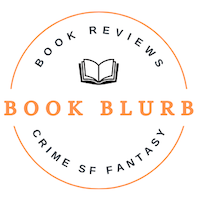Celebrating Military SF
There is one thing you can be sure of, modern science fiction gives us plenty of choice to choose from when it comes to sub-genre. Of course, it all depends on who you speak to about what may, or may not, make it onto the list but, for arguments sake, here are a few of what makes it onto my list:
- Alien Invasion
- A. I. (Artificial Intelligence | Nano Tech | Virtual)
- Colonisation (also: Terraforming)
- Dystopian
- First Contact
- Galactic Empire
- Generational Ships
- Military SF
- Near Future
- Parallel Universes
- Post Apocalypse
- Robots & Androids (see also AI above)
- Space Exploration
- Space Opera
- Time Travel
- Utopian
Time travel, by its very nature is, for me at least, problematic from the get go. But let’s make it clear, for us, as humans—and I have read a great deal of scientific data—there is nothing that will convince me that we can, as complex physical structures, travel either forward in time, let alone backward.
Two reasons pop up straight away.
- The nature of time itself, and
- Size matters
And don’t get me started on the lovely idea of transporters, as in Star Trek—which is also, in its own way, a form of time travel. Definitely a topic I might take up in a post, one day.
But back to sub-genre, and my fav sub-genre: military SF.
Now, anyone who knows me, and knows me well, will know just how much I love a good military SF read. It might be the fact I come from a military family, and my own background is several years service, or it could be how military SF is structured, the framework that is familiar and usually, action-packed too. Given that a great deal is either first contact, alien invasion of one sort or another, wars between worlds or empires, or war full stop.
It usually entails one or a more characters like Juan ‘Johnny’ Rico in Robert Heinlein’s classic, Starship Troopers, joining up to do their civic duty, earn citizenship, and fight aliens on some distant planet. Or like the fresh-faced Lieutenant Jander Mortas, in Glory Main by Henry V. O’Neil, in which he’s marooned on an alien battlefield teaming up with other survivors in order to figure a way to get off planet, alive. Or, taking a slightly different approach, as in my recent read, Planetside by Michael Mammay, in which an all but retired Colonel is asked to do one last so-called simple investigation for a missing lieutenant, on a hostile planet.
There are some excellent choices to choose from—and no, this is not a complete list by any stretch of the imagination, just some suggestions to get you going:
- WAR OF THE WORLDS (1898) H. G. Wells
- STARSHIP TROOPERS (1959) by Robert A. Heinlein
- DORSAI (1959) Gordon R. Dickson
- THE FOREVER WAR (1974) by Joe Haldeman
- HAMMER'S SLAMMERS (1979) by David Drake
- RIMRUNNERS (1989) by C.J. Cherryh
- ON BASILISK STATION (1993) by David Weber
- A HYMN BEFORE BATTLE (2000) by John Ringo
- VALOR'S CHOICE (2000) by Tanya Huff
- TRADING IN DANGER (2003) by Elizabeth Moon
- MUTINEER (2004) by Mike Moscoe
- OLD MAN'S WAR (2005) by John Scalzi
- GLORY MAIN (2012) by Henry V. O'Neil
- VELOCITY WEAPON (2019) by Megan E. O'Keefe
- PLANETSIDE (2019) by Michael Mammay
And, of course, let me know what your favourite SF sub-genre is, if any.
